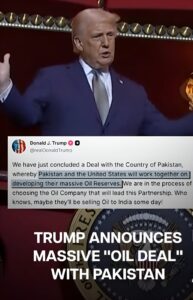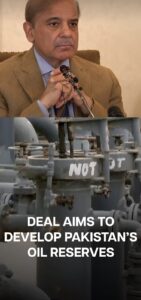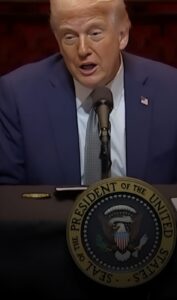
Trump Targets India With Tariffs Over Russian Oil Ties, In a major geopolitical development that has raised eyebrows in New Delhi, U.S. President Donald Trump has announced a significant oil exploration deal with Pakistan—just hours after imposing steep tariffs on Indian imports and threatening further penalties tied to India’s ongoing energy and defense ties with Russia.
Taking to his social media platform, Truth Social, Trump declared that the United States and Pakistan had finalized a deal to jointly develop Pakistan’s oil reserves. The U.S. is now in the process of selecting an American energy company to spearhead the initiative.
“We have just concluded a Deal with the Country of Pakistan, whereby Pakistan and the United States will work together on developing their massive Oil Reserves. We are in the process of choosing the Oil Company that will lead this Partnership. Who knows, maybe they’ll be selling Oil to India some day!” Trump posted.
Trump Targets India With Tariffs Over Russian Oil Ties
The announcement comes at a particularly tense moment in U.S.-India relations. Earlier the same day, Trump had unveiled a new set of trade restrictions targeting Indian exports, including a 25% tariff starting August 1. Additionally, he warned of an unspecified penalty against India for its continued imports of Russian crude oil and military equipment.
Trump’s language was unusually direct and critical. In the same post, he accused India of maintaining some of the highest tariffs and harshest non-monetary trade barriers in the world. He also took aim at India’s energy and defense ties with Moscow, reiterating his stance that continued trade with Russia undermines global efforts to end the war in Ukraine.
“India is our friend, but they have among the highest tariffs in the world and the most strenuous and obnoxious non-monetary trade barriers. They continue to buy the majority of their energy and military hardware from Russia—something that is NOT GOOD when the world wants Russia to stop the killing in Ukraine. INDIA WILL THEREFORE BE PAYING A TARIFF OF 25%, PLUS A PENALTY FOR THE ABOVE, STARTING ON AUGUST FIRST,” he wrote.
While the U.S. President did not elaborate on the nature or extent of the additional penalties, earlier comments from Trump and Treasury Secretary Scott Bessent suggest these could go as high as 100%. This aligns with Trump’s broader policy push of threatening secondary sanctions against countries that continue to buy sanctioned Russian oil.
India, the world’s third-largest importer of crude oil, relies on foreign sources for nearly 88% of its needs. Over the past year, Russia has become its top supplier, accounting for around 40% of India’s crude imports—displacing traditional suppliers like Iraq and Saudi Arabia. The U.S. is also among India’s top five oil sources, but Washington’s growing discomfort with New Delhi’s energy ties to Moscow has become increasingly evident.
Pakistan Oil Deal and Tariffs Complicate
Simultaneously, India and the U.S. are engaged in protracted negotiations over a potential interim trade deal. Analysts believe that the imposition of the 25% tariff and Trump’s recent rhetoric could complicate these negotiations further. Talks have been progressing slowly, and a sixth round of discussions is expected in August. Indian policy experts now believe the deal may not be finalized before September, with October seen as the latest realistic deadline.

For New Delhi, the 25% tariff alone is a significant economic hurdle, essentially restoring earlier reciprocal levels. However, the threat of additional penalties on top of that poses a more serious challenge, especially for Indian exporters who were hoping for concessions similar to those offered to other nations in recent U.S. trade deals.
Trump’s move also comes on the heels of heightened tensions between India and Pakistan, following the deadly Pahalgam terror attack in May, which Indian authorities blame on Pakistan-based militants. While Trump has publicly claimed that his administration brokered the resulting ceasefire between the two nuclear-armed neighbors, Indian officials have consistently denied any third-party mediation.
The decision to deepen energy cooperation with Pakistan—India’s traditional rival—further complicates the diplomatic landscape. Pakistan, for its part, is not known for significant oil reserves and relies heavily on imported energy. Trump’s announcement thus signals not only a potential strategic investment by Washington in Pakistan’s underdeveloped energy sector but also a symbolic pivot in U.S. policy.
Meanwhile, Trump continues to engage in similar tariff negotiations with other countries. He mentioned that South Korea, currently also facing a 25% tariff, has offered to “buy down” their trade barriers, and other countries are making similar offers to reduce their own tariffs in exchange for favorable U.S. trade terms.
“All of this will help reduce our Trade Deficit in a very major way. A full report will be released at the appropriate time,” Trump concluded.
As Washington recalibrates its global economic and strategic partnerships, India now faces mounting pressure to balance its long-standing ties with Russia against the evolving demands of a more transactional and assertive U.S. administration.

